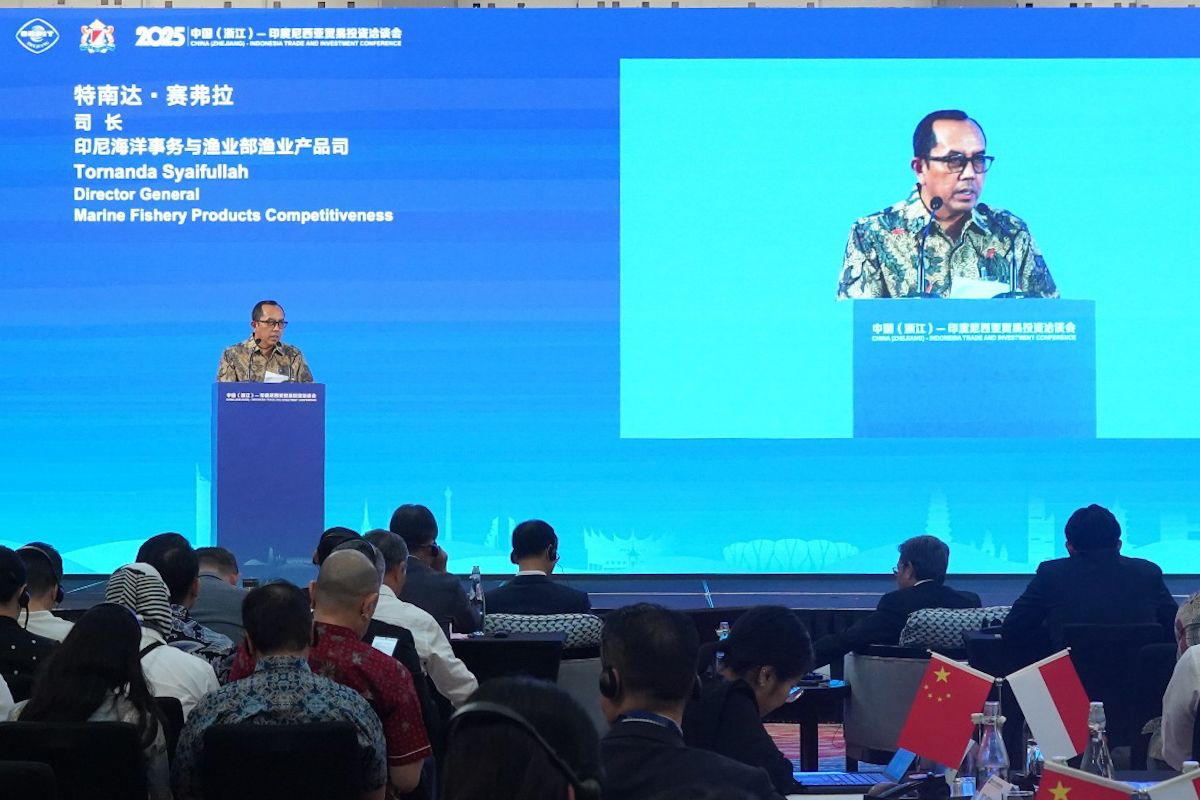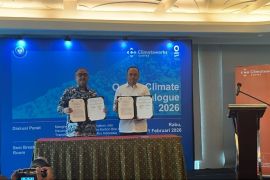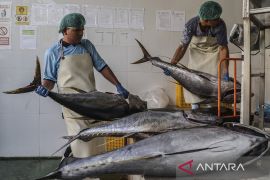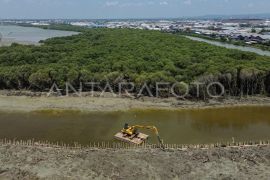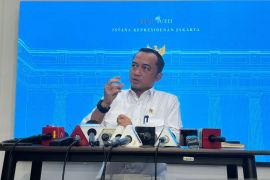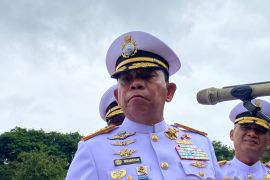"We are opening up space for investors to collaborate in the capture fisheries, cultivation, fisheries product processing, and strengthening sustainable logistics sectors," said Director General of Strengthening Competitiveness of Marine and Fisheries Products (PDSPKP) of the Ministry, Tornanda Syaifullah, when confirmed here on Sunday.
The forum, organized by Zhejiang Provincial Government and China Council for the Promotion of International Trade (CCPIT Zhejiang), aims to strengthen economic relations between the two countries and open up investment opportunities in strategic sectors, including maritime and fisheries, manufacturing, logistics, and renewable energy.
Syaifullah represented the Minister of Maritime Affairs and Fisheries Sakti Wahyu Trenggono in attending the forum.
He said the government's commitment to create a conducive and competitive investment climate is realized through easy licensing, incentives, supporting infrastructure, and reliable human resources (HR).
The collaboration is part of an effort to create a resilient, inclusive and globally competitive national fisheries industry, in line with the target of sustainable blue economic development.
He said that the Ministry's data showed a positive trend in the Indonesia-China fisheries trade relationship. In 2024, Indonesia's fishery product exports to China reached US$1.24 billion.
Meanwhile, imports were only recorded at US$96.7 million, so that Indonesia received a trade surplus of fishery products of US$1.15 billion.
Indonesia's main export commodities to China include squid-octopus (32.9 percent), seaweed (18.6 percent), ribbonfish (7.9 percent), shrimp (7.5 percent), crab (6.2 percent), and lobster (3.6 percent).
Meanwhile, imports from China are dominated by frozen Pacific mackerel (Scomber japonicus) commodities at 52.2 percent, frozen squid (especially Todarodes pacificus and Dosidigcus gigas types) at 9.6 percent, and carrageenan (6.0 percent).
Previously, Minister Trenggono initiated the blue economy program to increase the competitiveness of Indonesian fishery products by prioritizing a sustainable production system.
In implementing the program, the ministry strengthens synergy with multi-stakeholders in various fields, from upstream to downstream in the fisheries sector.
Related news: Indonesia-China strengthen cooperation in fisheries sector: Minister
Related news: Indonesia explores fish farming cooperation with China’s Guangdong
Translator: Muhammad Harianto, Katriana
Editor: Arie Novarina
Copyright © ANTARA 2025
